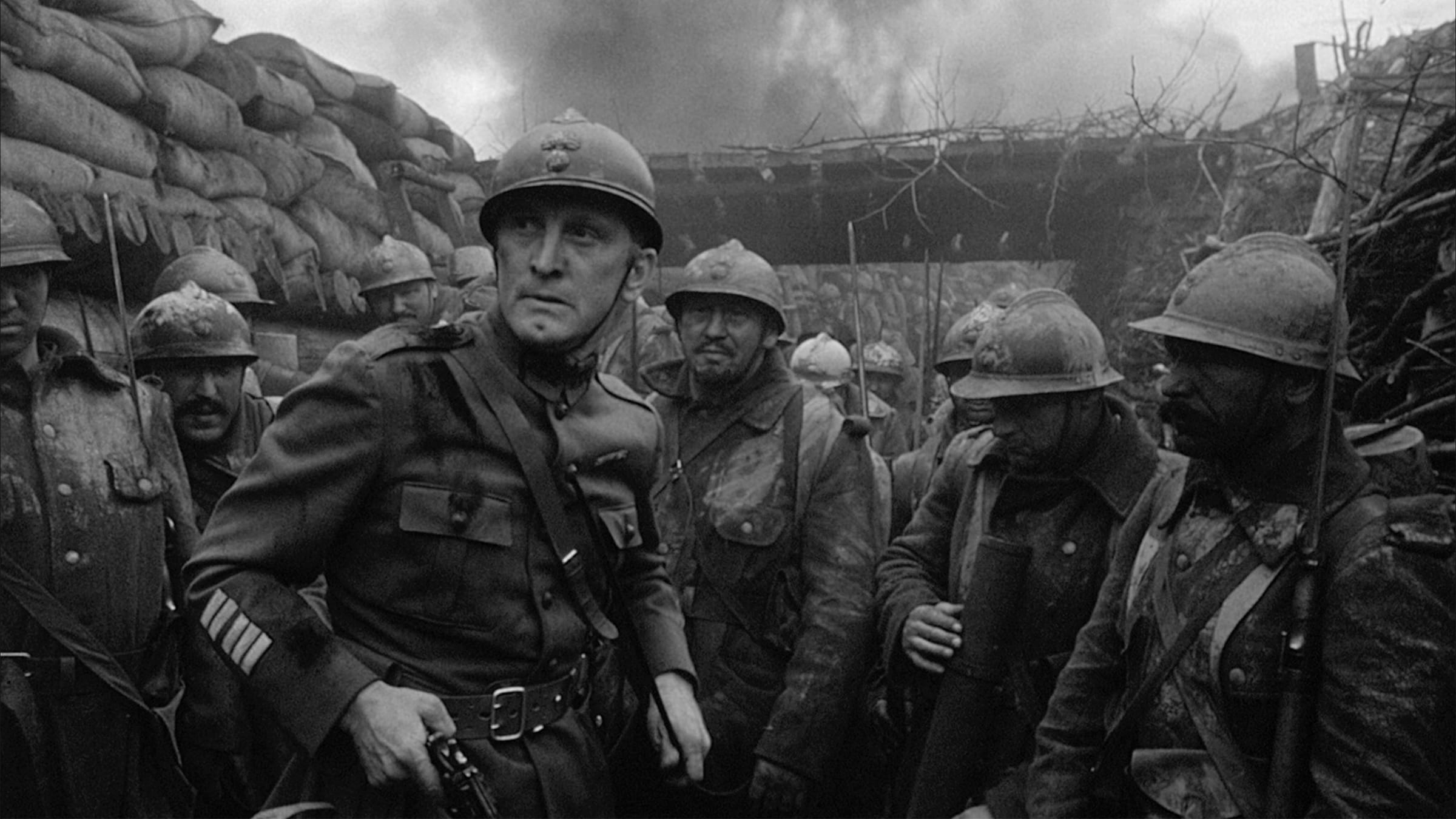Paths of Glory
The Perseverance of Humanity

Paths of Glory was a visually stunning movie, but also about the lack of humanity on the battlefield and a story of how people with power cannot see the perils and hardships of people below them. The movie is instigated by General Broulard and Mireau's greed for power and ranking despite knowingly sending men into a fight they cannot win. General Mireau's preoccupation with being in line for the "12th" intensifies his apathy and leads him to spout pro military coercion to Colonel Dax without fully understanding the harm it will do. The protagonist, Colonel Dax, reverts this enthusiasm and mentions the humanity of both sides, something that General Mireau doesn't see. Throughout the movie, the audience sees how humanity remains in people throughout the ranks, with the Generals lacking, the Colonels refraining from showing emotion to stay strong for their soldiers, and the soldiers themselves succumbing to their humanity at the brink of death. The people who are closest to death are subjected to the worst experiences in that time era but still retain empathy, whereas the Generals are apathetic and treat emotion as a virus.
As General Mireau lectured the chosen soldiers on how they're being used as examples, they don't see the hypocrisy by setting a trial in a palace. Their wealth and grandeur is a harsh clash with the roughness of the soldier's appearances, representing the separation between ranks and empathy. This movie shows how a fight for humanity can be transformed during war, power hungry people, and an omission of history/witnesses of fellow soldiers. There is no compassion through the movie between different "levels" with the colonel being the exception. As the two men were talking about the cockroach, it reminds me of how lesser people who serve to be guilty of the trial will live longer due to their status, like Lieutenant Roget and General Mireau. In war, misery and greed can fuel people to betray their fellow soldiers and people they should be loyal to, however humanity will still live on.
The protagonist, Colonel Dax, upheld that some people cannot succumb to power and humanity will triumph in the face of greed with deep pockets. By fighting for his soldiers in the trial and refusing the General's position, the audience can feel relief that the humanity hasn't fully gone from that world. Similarly to Dax, the only people who accept emotion and visually withheld it for the better of their soldiers are the authority figures who have fought beside them. This shows that even fighting in an environment that is completely void of humanity, people will remain true to their souls and retain their compassion. He fought for Arnaud, Paris, Ferol despite it having consequences on his position. He believed Paris about Lieutenant Roget and upheld justice by appointing him for the firing squad leader, Dax had his soldier's wishes in mind.
The end initially conveyed to the audience that the loss of humanity had no effect on the antagonist's grandeur, they still shot back to the lavish house and continued on about how great the example was. However, the entrance of Colonel Dax showed that with humanity and determination, justice will prevail. By turning down the position offered by the catalyst for this movie, Dax proves that not all humanity will be lost to greed and power. This in turn relates to the German woman singing to a group of French soldiers. As the soldiers were rowdy and had the power to be a terrible audience to this woman, they chose to quiet down and show their humanity by taking the time to listen to her sing and view her as a fellow human. This is powerful because even though she was the only woman they've seen this whole movie and a part of their enemy, they forgo this due to them finding meaning in her song and empathizing with her. Even though this movie showed the stifling of humanity and emotion for political exploitation, the men who have witnessed the most destruction and violence still carry their souls. We're all human, even the enemy.
